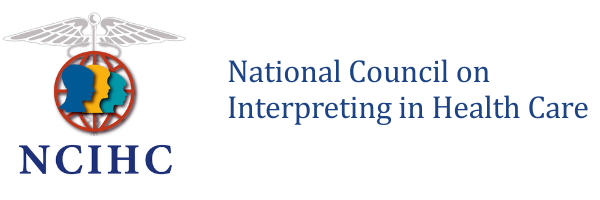FAQ - Translators and Interpreters
Information about skills, training, and certification
What is healthcare interpreting?
It is interpreting that takes place in healthcare settings of any sort, including doctor’s offices, clinics, hospitals, home health visits, mental health clinics, and public health presentations and financial assistance. Typically, the setting is an interview between one or more healthcare providers (doctor, nurse, lab technician), health care team(s), and a patient (or the patient and one or more family members). The last part of this definition doesn’t allow for interpreting in the financial aid department of a hospital, etc.
What is the definition of a qualified interpreter?
An individual who has been assessed for professional skills demonstrates a high level of proficiency in at least two languages and has the appropriate training and experience to interpret with skill and accuracy while adhering to the National Code of Ethics and Standards of Practice published by the National Council on Interpreting in Health Care.
What is the difference between a healthcare interpreter and a bilingual individual?
A bilingual individual is a person who has some degree of proficiency in two languages. A high level of bilingualism is the most basic of the qualifications of a competent interpreter, but by itself does not ensure the ability to interpret. A bilingual employee may provide direct services in both languages but, without additional training, is not qualified to serve as an interpreter.
What is the difference between “interpretation” and “translation”?
In popular usage, the terms “translator” and “translation” are frequently used for the conversion of either oral OR written communications. However, within the language professions, translation is distinguished from interpreting according to whether the message is produced orally (interpreting) or in writing (translation).
What should professional healthcare interpreters know to do a good job?
The following six components together comprise a reasonably comprehensive process for the initial assessment of qualifications for healthcare interpreting.
- Basic language skills. General proficiency in speaking and understanding each of the languages in which the applicant would be expected to work. (If multiple languages are involved, it is essential that the applicant’s ability in each language be assessed, especially those in which the applicant may have more limited proficiency.) The applicant should be able to demonstrate public speaking skills.
- Code of Ethics. Recognition of ethical issues, knowledge of ethical standards (a code of ethics), and ethical decision-making.
- Cultural issues. Ability to anticipate and recognize misunderstandings that arise from the differing cultural assumptions and expectations of providers and patients and to respond to such issues appropriately.
- Healthcare terminology. Knowledge of commonly used terms and concepts related to the human body; symptoms, illnesses, and medications; and healthcare specialties and treatments in each language, including the ability to interpret or explicate technical expressions.
- Integrated interpreting skills. Ability to perform as required for employment, demonstrated by interpreting a simulated cross-linguistic interview with acceptable accuracy and completeness while monitoring and helping to manage the interaction in the interest of better communication and understanding.
- Translation of simple instructions. Ability to produce oral translations, or, where appropriate, brief written translations, of written texts such as signage or medicinal labels.
Some interpreters say they are “certified.” Is there a difference between qualified and certified interpreters?
A certified interpreter is an interpreter who is certified as competent by a professional organization or government entity through rigorous testing based on appropriate and consistent criteria. Interpreters who have had limited training or have taken a screening test administered by employing a health interpreter or referral agency are not considered certified. Some programs offer a certificate of completion, but this does not equal certification.
A qualified interpreter is an individual who has been assessed for professional skills, demonstrates a high level of proficiency in at least two languages, and has the appropriate training and experience to interpret with skill and accuracy while adhering to the National Code of Ethics and Standards of Practice published by the National Council on Interpreting in Health Care.
Where can I find training?
There are few colleges or universities that offer programs in medical interpreting. For a list of colleges that offer programs in translation and interpreting, see the American Translators Association website www.atanet.org under “careers.” There are also many other learning opportunities. For a list of training providers, see NHeLP’s Language Services Resource Guide.
For self-guided learning about the profession, see NCIHC’s Working Papers Series (under “Resources”), including a National Code of Ethics for Interpreters in Health Care and National Standards of Practice for Interpreters in Health Care, as well as a glossary of terms. In addition, NHelP’s Language Services Resource Guide (2006) contains multilingual tools and resources, and a glossary of translation and interpreting terms. There is also a good description of the profession at Explore Health Careers.
Where are we on certification?
See FAQs under the Certification tab.
I am bilingual in English and Spanish and am interested in becoming an interpreter. What should I do?
A good starting point is to review a job description for a healthcare interpreter at Explore Health Careers. After that, you may find it useful to read all the FAQs on this page.
What is the demand for healthcare interpreters?
Based on the Bureau of Labor Statistics information for 2006, which is the most recent information readily available, medical interpreters enjoy very high demand for their services as the country’s international population increases. According to the BLS, the need for medical interpreters is expected to grow by a whopping 24% over the ten-year period ending in 2016, which is “much faster than average”. For more information, visit the Bureau of Labor Statistic's Job Outlook web page, and the Explore Health Careers' website.
What is the difference between a healthcare interpreter and other types of interpreters?
An interpreter, in general, is a person who renders a message spoken or signed in one language into a second language and who abides by a code of professional ethics.
A healthcare interpreter is one who interprets in healthcare settings of any sort, including doctor’s offices, clinics, hospitals, home health visits, mental health clinics, and public health presentations. Typically the setting is an interview between a healthcare provider (doctor, nurse, lab technician) and a patient (or the patient and one or more family members).
|


